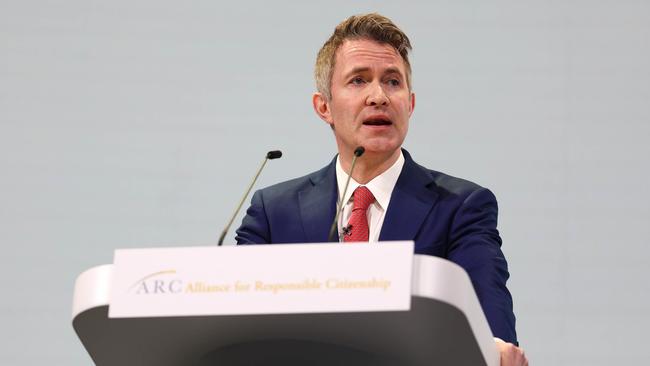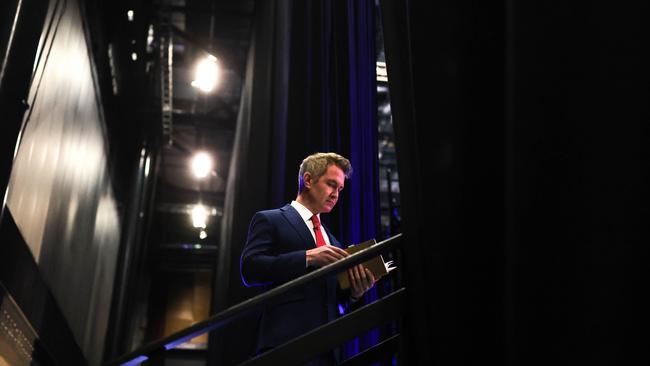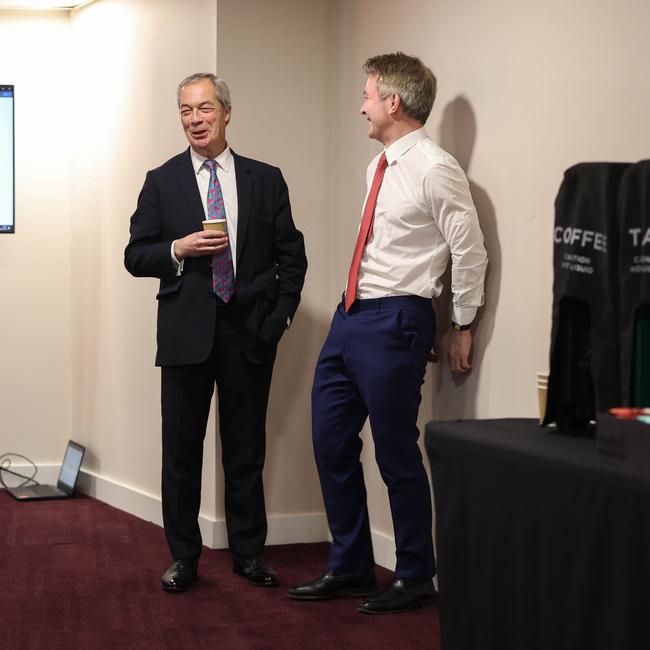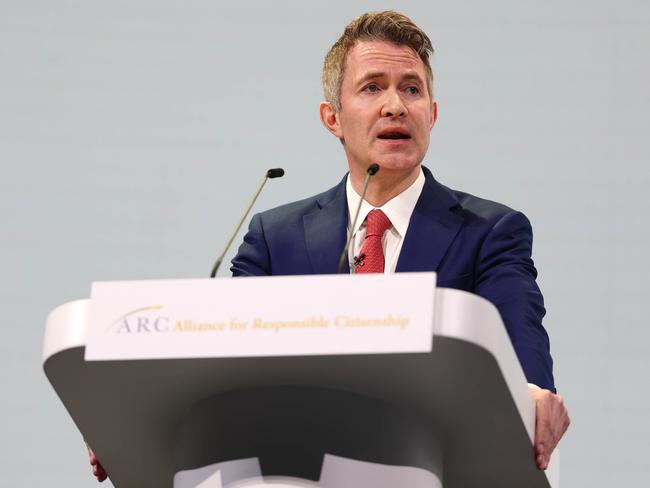The truth about our decline: Douglas Murray’s talk that left 4000 people at ARC speechless

Postmodernism, of course, included its offspring deconstructionism, and nothing came from that. But I would like to suggest a name for the age we should be in and the age we can help bring in: the age of reconstruction.
We should be the reconstructionists. The deconstructionists knew something about how to take things apart. But, like children with bicycles, they had no idea how to put them back together. So it will be the job of people like us, the reconstructionists, to try to put that civilisation back together.

I want to lay out two broad ideas of what we can do to bring this to pass. First, let me begin with an example. In Europe there seems to be a certain contempt for innovations that are occurring in the United States, not least at the governmental level.
There has been much whining and howling about DOGE’s attempts to not just stop government waste but actually expose it. One of its great advantages so far is you not only see a way in which a country like America might balance the budget but, in stripping away all those layers of bureaucracy, you also discover the kind of rot our societies have been willing to put up with for so long.
The administration in Washington – after USAID was found to be so rotten it had to be gotten rid of entirely – is now looking at the Department of Education. In America, as in the rest of West, there is no greater task. In New York State, where I spend much of my time, an average spend for state school is now, per pupil, around $US35,000 a year.
For that sum, kindergarten through to 12 students finish with only about half of them attaining basic literacy and about half basic numeracy. So nobody can say money is the problem. You can keep throwing money at this problem, and you can still create more and more illiterates.
There are many things that can be looked at and the first is innovation. There’s an enormous amount to learn, rather than to scorn about the American experience. There are reasons why so many of the unicorn start-ups are from America. There must be something they’re doing right. In Britain we still have a situation where one in five of the working age population simply do not work. The rest of the taxpayers subsidise those people not to work. This is a great national scandal, but still something our governments don’t care to address.
To my mind, one of the great explanations for this disparity in innovation between Europe and America is very simple. It’s our attitude towards risk. In America, the idea remains that life is risky – that success is risky. But across much of the West, we’ve fallen into a kind of complacency, which is a sort of welfarism.

When I returned to Britain recently, I discovered the great debate was about how to kill the elderly more efficiently. I was struck that the only argument any Labour minister could make against euthanasia coming online with the National Health Service was from an MP who said she didn’t think the NHS was capable of performing euthanasia efficiently.
I mentioned at the time that this was wrong in one important respect. The NHS is a world leader in killing the elderly; it’s just they only kill the people who don’t want to die. The NHS is always said to be the envy of the world and yet no one can find a GP appointment.
Clever people can sometimes say very stupid things. And in a recent interview, Yuval Noah Harari, who wrote Sapiens, was asked if there was any book he would recommend that people could read in the present to understand the future that’s coming. He said no he couldn’t think of such a book because change was going to be so incredibly fast.
That’s flat out wrong. Change has always happened. And if you want a book to guide you, how about having the book that’s guided your forebears? Now to do that, you need civilisational renewal and that includes the ability to look back.

We’ve wasted so much time in recent years. People have made us move at such a retarded speed. We’ve had years of talking about the most basic things that our species already knew, such as men and women and who are they. Who had time for this in the past?
The problem is there’s a cost to this – there has been a civilisational cost to be made to go at the speed of the slowest kids in the class.
One response to the era of mass migration that I’ve written a great deal about has been what I’ve called the deculturation of our societies, the idea that in order to welcome people into our societies, we effectively have to pretend we’re uninteresting and unimportant places until migration makes us interesting.
Recently a friend of mine used an analogy to explain this to me. He said that, as a boy, he had the impression that ice cream was something whose base flavour was vanilla, and all other flavours were added on top of vanilla. It was only at some point in his youth, he said, that he discovered vanilla itself has a flavour, and a very complex flavour.
The West has created an extraordinarily complex and rich flavour, and we have spent recent years pretending we have no flavour, or that flavour is something that only other people bring to us. This is, of course, flat out wrong, but it’s been something we’ve now told more than one generation of young people in the West.
We’ve told them that we don’t really have anything very great, or if we do we ought not to talk about it much. I believe this is wrong because what we have in the cities of Europe and the West are the greatest civilisation the world has known.
We have a choice either to live in the wastelands or to rebuild them. Now, there are cities in Europe – I think of Budapest and I think of many German cities – where the idea is you actually can restore beauty to the built environment, and that people do not need to wander like lost souls around the wastelands looking for meaning against buildings that tell them, “you are nothing, you do not matter”.
We have the opportunity to restore not just the built environment, but the educational environment. And when we talk about our culture we must realise that it’s not just something young people should revere, but something they can add to – to understand the conversation, the poetry of mankind. To understand that just because Mozart is great does not mean you cannot build on Mozart. That just because great buildings are great does not mean you cannot add to them.
In the age of reconstruction, I would urge that our greatest task is not just to break through with innovation but to reclaim what is ours. To say that we love it, and that if people wish to join us in the veneration of this civilisation, they are very, very welcome to do so. If they don’t wish to join us, there are other places they can be.
Everybody who reveres TS Eliot reveres him in part because he told us and tells us still that a civilisation can be reclaimed even at the 11th hour. But I would say there is another possibility, which is that civilisation can also be reclaimed even at the 13th hour, in the most inauspicious circumstances.
Douglas Murray is an English author and columnist. His latest book is The War on the West (HarperCollins, Australia). This is an edited version of a speech he delivered to the Alliance of Responsible Citizenship conference in London.






One question all ages ask themselves is what do they call the age they are in. Almost every age confronts this question. Most recently the age of modernism asked what comes after modernism, and the rather unoriginal idea was postmodernism.